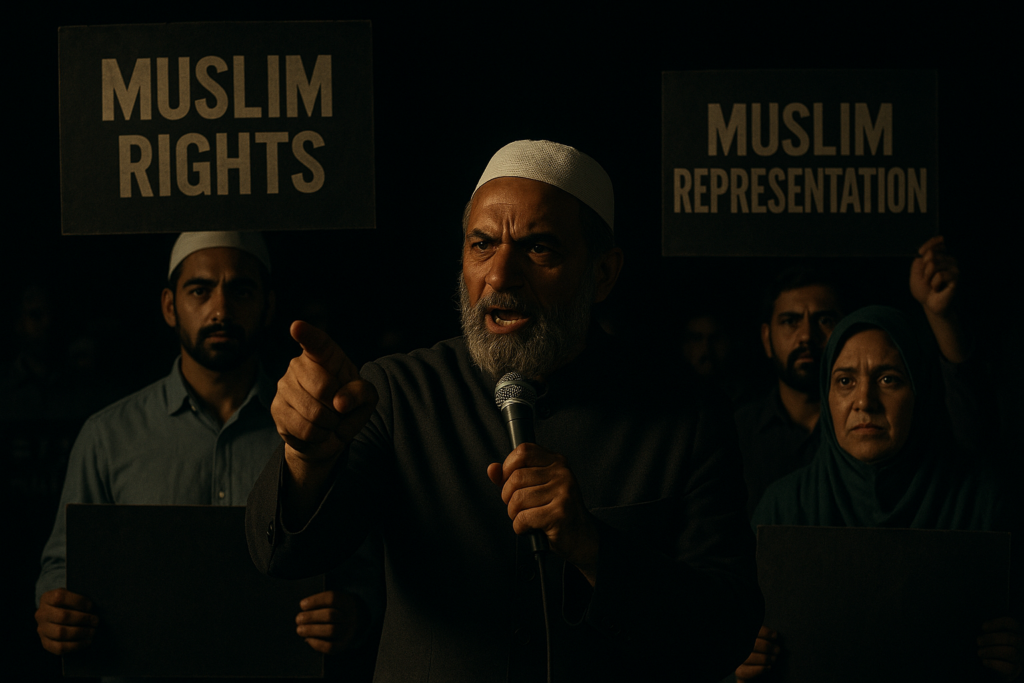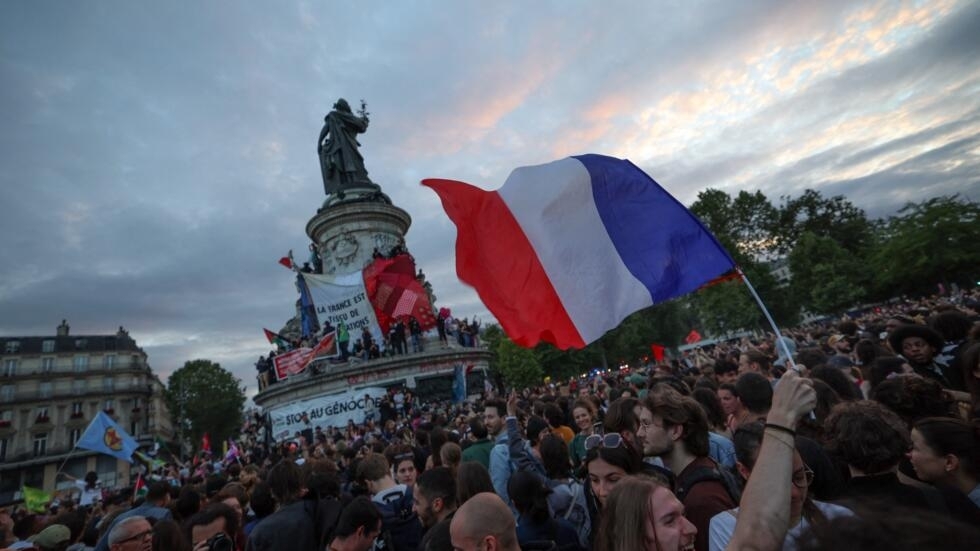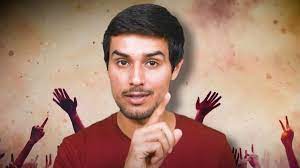
After India’s independence, the Rashtriya Swayamsevak Sangh (RSS) was banned following Gandhi’s assassination. When the ban was later lifted, it was done on the condition that the organization would stay away from politics. Around the same time, Jamiat Ulema-e-Hind voluntarily announced its withdrawal from political affairs — even though the government had not advised them to do so.
Today, the reality is quite the opposite. The same RSS that was strictly instructed to remain apolitical now controls the entire Indian political landscape. And the Jamiat Ulema-e-Hind, which had willingly distanced itself from politics, holds little more than a fragile and symbolic political presence.
The Jamiat Ulema-e-Hind was founded in 1919, and six years later, in 1925, the RSS came into existence. The Jamiat’s primary goal was India’s freedom, for which it struggled relentlessly until independence was achieved. The RSS, on the other hand, was founded with the vision of turning India into a “Hindu Rashtra” — a Hindu nation — and has been working tirelessly toward that goal ever since.
After independence, the Congress established a secular government. Both the Congress and the Jamiat Ulema-e-Hind had fought for India’s freedom, so it seemed natural for the Jamiat to support the Congress. From that point onward, the Jamiat and almost every Muslim organization that emerged later adopted the same political approach — to support the Congress and similar so-called secular parties. Among these organizations were Jamaat-e-Islami Hind, Imarat-e-Sharia, Muslim Majlis-e-Mushawarat, and the All India Muslim Personal Law Board.
Following the political philosophy of these organizations and religious scholars, Indian Muslims consistently voted for secular parties. They never made a serious effort to build their own independent political leadership. And whenever a Muslim voice rose in favor of independent Muslim political representation, it faced severe opposition from these very organizations and their clerical circles.
Yet, in a democratic India, every community has the right to form its own political leadership — and almost every other social group has done exactly that. But despite being a population of over two hundred million, Muslims have never been allowed to emerge as an independent national political force. Some religious leaders and heads of Muslim organizations even went so far as to claim that in India, a Hindu will always be the leader of Muslims.
Since independence, the Congress has governed the country — both at the Center and in most states — for the majority of the time. During this long period, India has witnessed over 50,000 anti-Muslim riots. Hundreds of thousands of Muslims have been killed, thousands of women and girls raped, properties looted and burned, and families displaced.
Immediately after independence in 1947, communal riots erupted in Delhi. In 1948, with the annexation of Hyderabad, large-scale massacres of Muslims took place. Then came Jabalpur (Madhya Pradesh, 1961), Calcutta (West Bengal, 1964), and Ahmedabad (Gujarat, 1969) — all marked by horrific anti-Muslim violence. In 1980, on the holy day of Eid, Muslims were shot dead right after offering prayers at the Eidgah. In 1983, the Nellie massacre in Assam saw another wave of Muslim genocide.
In 1987, in Hashimpura and Maliana (Uttar Pradesh), Muslims were loaded into police trucks, taken to riverbanks, shot dead, and their bodies dumped into the water. In 1989, the Bhagalpur riots in Bihar raged for months — corpses of Muslims were buried, and cabbages were planted over their graves. In 1992–93, riots engulfed Mumbai and Bhiwandi in Maharashtra.
Throughout these decades, secular governments — especially the Congress — remained in power, while the cycle of anti-Muslim violence continued. These riots systematically weakened, traumatized, and devastated India’s Muslim community. Each major riot carries its own horrifying story of brutality, while countless smaller ones — often aimed at inflicting economic damage — became an almost yearly occurrence somewhere across the country.
Despite facing one horrific tragedy after another, Muslim scholars, clerics, and leaders of community organizations continued to urge Muslims to vote for the Congress and other so-called secular parties — and Muslims continued to obey.
They were ruined, devastated, dragged into false cases, and thrown behind bars — yet they remained loyal voters of the Congress and secularism.
Even after decades of continuous communal riots that destroyed Muslim lives and livelihoods, these same secular parties shamelessly returned during every election to seek Muslim votes. And not once did Muslim scholars, community leaders, or the heads of religious organizations hold the Congress or any secular party accountable for these repeated massacres.
They never demanded answers.
They never warned: “If Muslim lives and properties are not protected, if our interests are ignored, you will face consequences in the next election.”
Had Muslim scholars and religious bodies dared to teach Congress and other secular parties even a single political lesson — just once or twice — the attitude of these parties today would not have been, “Where else will the Muslims go?”
But they never did.
Instead, they pushed Muslims into a condition of unconditional servitude to secular parties.
And today, the situation of Muslims is like the old saying:
“Like the washerman’s dog — belonging neither to the home nor to the riverbank.”
Neither Congress nor other secular parties want to see the rise of an independent Muslim political leadership. Nor do they allow the Muslim faces within their own parties to grow into influential national leaders.
All they want is the Muslim vote — the vote of obedience, the vote of fear, the vote of dependence.
They cannot tolerate Muslims having an independent political voice, a national platform, or a strong leader of their own.
The Congress pattern has always been clear:
Riots occur — Muslims suffer.
Then, in the name of terrorism — under labels like Lashkar-e-Taiba, Indian Mujahideen, and others — educated Muslim youth are arrested every year or two, kept in jails for 10 to 20 years, and eventually released by slow-moving courts with the words “acquitted with honor.”
But what honor remains? Their lives are destroyed; their dignity never returns.
Most bomb blasts, too, happened during Congress rule — and every time, Muslims were the first to be arrested.
This was the pattern of Congress and the secular parties: systematic oppression of Muslims under different pretexts.
For the last eleven years under BJP rule, this pattern has changed — not stopped.
It would be a mistake to assume that the oppression of Muslims has ended. It has simply transformed.
Now, Muslims are killed through mob lynchings and hate-driven attacks.
Now, hate speeches, mobs, and bulldozers target madrasas, mosques, Muslim homes, and shops.
The violence continues — only the method has changed.
So the real question is:
For how long will Indian Muslims continue to be crushed between “secularism” and “communalism”?
Why can’t they chart their own independent political path — their own solution?
And if they are to support secular parties, why not do so conditionally — on their own terms, with real demands and accountability?
In a free nation, how can a community of millions be kept in such political slavery, without rights, without representation, without benefit?
Since independence, the graph of Indian Muslims has been falling steadily in every field — economy, education, government and private employment, business, industries and manufacturing, film and television, politics, journalism, law, or sports. In every sector, Muslim representation has been shrinking.
If the so-called secular parties truly believed in equality, then even if they couldn’t elevate Muslims like they did other backward and marginalized classes, they could at least have prevented their downfall.
But the Congress and other secular parties chose a different path — pushing Muslims further down through communal riots and false allegations of terrorism.
Congress has indeed done commendable work to uplift deprived and backward sections of society — yet at the same time, it systematically pushed Muslims below even those marginalized groups.
Why, then, do Muslim religious and community leaders hesitate to question these secular parties — especially during elections?
Or have they simply forgotten everything over the past eleven years?
All that seems to remain in their memory is this one slogan: “Defeat the BJP!”
In a democracy, elections are the strongest weapon to demand your rights and assert your voice.
Even if Muslims continue to support the Congress and other secular parties, they must hold them accountable.
They must present their conditions, their interests, and their demands — and if these are not fulfilled after elections, the Congress and all such parties must be punished politically.
They should be defeated badly in the next election.
That’s how political value and bargaining power are built.
But instead of doing that, Muslims continue to carry the burden of secularism — becoming loyal subjects of secular parties that only care about their votes.
These parties know well that Muslims will not leave them, because — “Where else will they go?”
In Indian democracy, opportunism is the most rewarding currency. Every community and caste in India shifts between secular and non-secular camps for its own benefit.
All political parties, regardless of ideology, ensure adequate representation of these groups.
In fact, most communities even have their own political parties — which strategically join either UPA/INDIA or NDA alliances depending on where their interests are best served.
There’s nothing wrong in that.
In a democracy, when the country progresses and other communities move ahead, it is only wise for a community to seek progress for its own people — even if it means switching sides when necessary.
In democracy, permanent friendship or permanent hostility with any political camp is self-destructive.
The absence of a strong Muslim political leadership — both at the national and state levels — combined with this policy of eternal loyalty to some and eternal hostility to others, has been disastrous for Muslims.
The consequences we face today are a direct result of that.
The decision of Muslim religious and community leadership to withdraw from active politics after independence was a historic blunder.
Persisting with that stance even today is foolishness.
And believing that “only a Hindu can lead the Muslims in India” is nothing short of shameful surrender.
Even the Adivasis — the forest dwellers who once lived far from the mainstream — have understood the value of political representation in democracy.
They joined every major party and also built their own independent Adivasi political force.
Through unity and persistence, they became so strong that they established their own government in the state of Jharkhand.
Today, even the Congress must bow to Adivasi unity — because if it doesn’t form an alliance, the Adivasi leadership can easily partner with the BJP and form a government.
For Adivasi leaders, the rights and interests of their people come first — before secularism or communalism.
Every community in India, except the Muslims, follows this pragmatic approach.
Only Muslims remain trapped in the quicksand of secularism and communalism, unable to move forward.
Whenever the idea of forming an independent Muslim political leadership arises, the first and fiercest opposition comes from within — from Muslim scholars, heads of community organizations, and Muslim politicians embedded within secular parties.
Behind their opposition lies the same enslaved political mindset that has kept Muslims chained to the Congress and other secular forces for decades.
That is why Badruddin Ajmal’s All India United Democratic Front (AIUDF) remains confined to Assam.
That is why the Indian Union Muslim League has never moved beyond Kerala.
That is why the All India Majlis-e-Ittehadul Muslimeen (AIMIM) struggles to expand beyond Telangana.
That is why the Social Democratic Party of India (SDPI) hasn’t grown nationally.
And that is why parties like the Welfare Party of India, Peace Party, Ulama Council, and Indian National League have all failed to take off.
Indian Muslims have repeatedly turned to religious and communal leaders — not to independent Muslim political leaders — when it comes to politics and elections. On their guidance, Muslims have continued to vote for secular parties. Though governments formed mostly by those secular parties have come and gone, Muslim conditions have not improved; in fact they have worsened.
Muslims rejected parties like the Peace Party, Ulama Council, Welfare Party of India, and Indian National League. AIUDF was confined to Assam, IUML to Kerala. Even Asaduddin Owaisi’s AIMIM was kept restricted to Telangana for a long time. Now that Asaduddin Owaisi is relentlessly trying to build an independent Muslim political leadership across several states, he faces fierce opposition from religious and community leaders.
Instead of choosing a well-read, seasoned politician like Asaduddin Owaisi, Indian Muslims still listen to clerics and religious leaders. Owaisi’s party has been shut out in Jharkhand, West Bengal, Tamil Nadu, Gujarat, and Delhi. In Maharashtra, Bihar, and Uttar Pradesh it faces outright rejection.
If Muslim conditions in India are deteriorating rapidly, the responsibility lies squarely with the religious scholars, community leaders, and heads of Muslim organizations — because the Muslim voters have followed them until now, and continue to do so.
If Indian Muslims abandon their traditional political stance of unconditional support for secular parties and free themselves — politically — to pursue their own interests, their condition will slowly start to improve.
In a democracy, treating a party as a permanent enemy or permanent friend is foolish and harmful. Muslims must realize that although they are a minority by numbers, with an independent political leadership they can negotiate terms with both the Congress and the BJP alliances on their own conditions.
Yes, there are Muslim leaders in secular parties, but they rarely accomplish anything for their people. They do not have the courage to cross the party line for fear of being sidelined. They cannot even protect their communities from ruin, let alone deliver benefits.
The pain is most visible when Muslim leaders within secular governments fail to stop anti-Muslim riots. During the Muzaffarnagar riots in 2013, for example, the state government was led by the Samajwadi Party, and around 70 Muslim MLAs sat in its legislature — yet Muslims’ dignity was violated and heavy loss of life and property occurred. This was not an isolated case: most major riots in the country occurred under supposedly secular governments, even when Muslim ministers and MLAs were present.
Today, Narendra Modi’s government stands on the support of 12 MPs from Nitish Kumar and about 16 MPs from N. Chandrababu Naidu. Imagine if, instead, Asaduddin Owaisi had 12 or 16 MPs who formed the basis of a government — could the CAA have been repealed? Absolutely. In fact, because of the anti-CAA movement, Muslim students, activists, and scholars imprisoned over the last five years could have been released. Bills hostile to Muslims — like amending the Waqf Act in discriminatory ways — would not have been tabled in Parliament. All the hateful agendas visible today could have been stopped in a single stroke.
This is only possible through an independent Muslim political leadership. Conversely, even if 12–25 Muslim MPs sit inside the BJP or Congress, they cannot deliver collective benefit to the community. Therefore, it’s vital to understand: Muslim political power is possible only through an independent Muslim political leadership.
Having Muslim MPs and MLAs scattered across different parties does not help. But if the same twenty to forty MPs belong to one Muslim political party, then whether the government is formed by the Congress-led alliance or the BJP-led alliance, Muslim can join the government, create leverage, and build control.
In that way, Muslim can defeat the patterns of oppression practiced by both Congress and BJP.
Written by : Imran Ahmed


